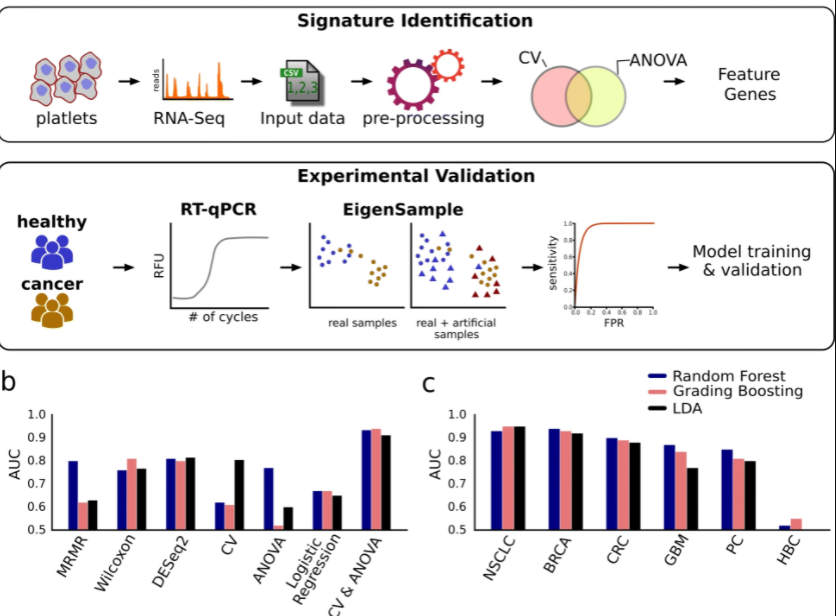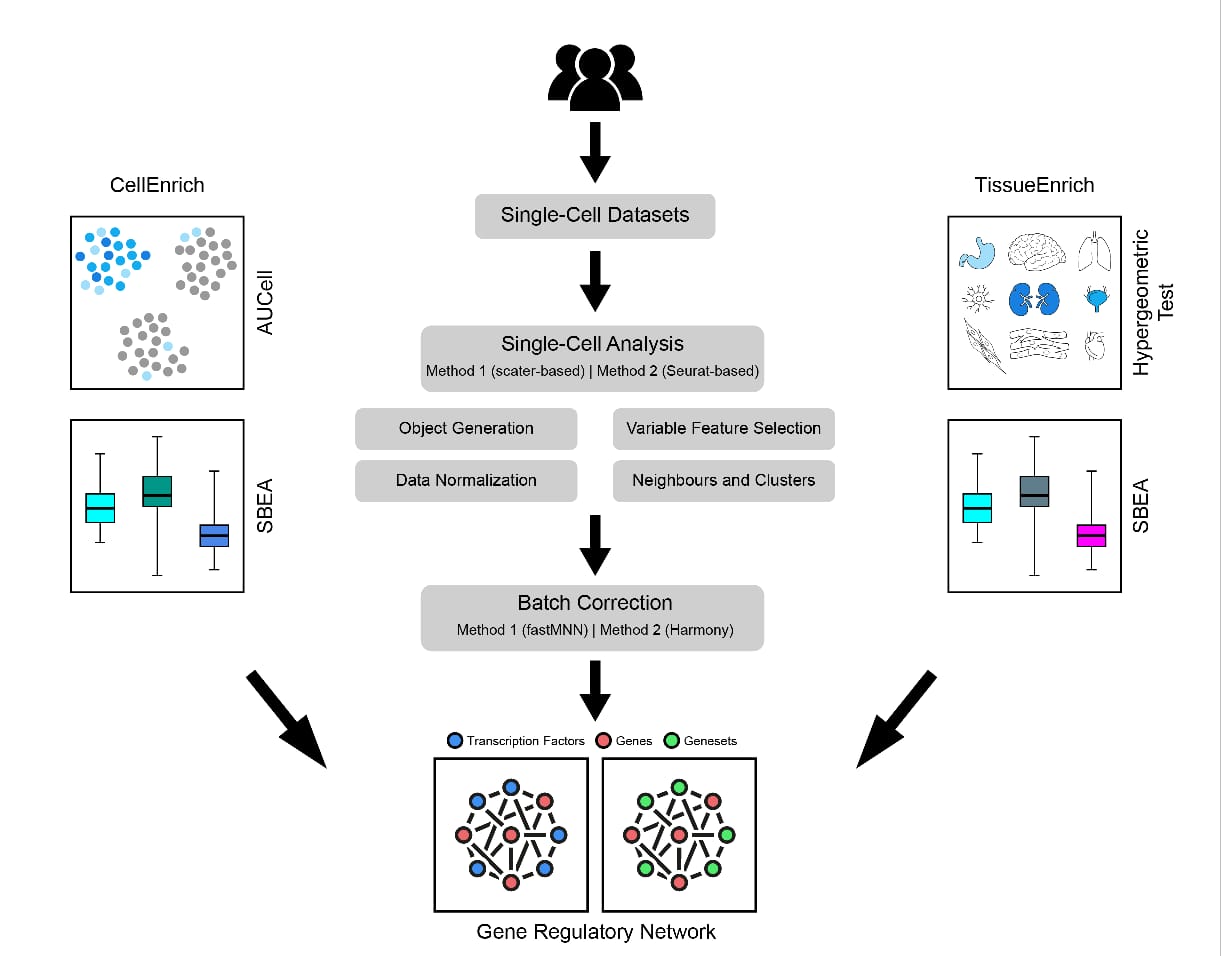
Molecular signature comprising 11 platelet-genes enables accurate blood-based diagnosis of NSCLC
Authors: Chitrita Goswami, Smriti Chawla, Deepshi Thakral, Himanshu Pant, Pramod Verma, Prabhat Singh Malik, Jayadeva, Ritu Gupta, Gaurav Ahuja & Debarka Sengupta
Abstract
Early diagnosis is crucial for effective medical management of cancer patients. Tissue biopsy has been widely used for cancer diagnosis, but its invasive nature limits its application, especially when repeated biopsies are needed. Over the past few years, genomic explorations have led to the discovery of various blood-based biomarkers. Tumor Educated Platelets (TEPs) have, of late, generated considerable interest due to their ability to infer tumor existence and subtype accurately. So far, a majority of the studies involving TEPs have offered marker-panels consisting of several hundreds of genes. Profiling large numbers of genes incur a significant cost, impeding its diagnostic adoption. As such, it is important to construct minimalistic molecular signatures comprising a small number of genes.

EcTracker: Tracking and elucidating ectopic expression leveraging large-scale scRNA-seq studies
Authors: Vishakha Gautam, Aayushi Mittal, Siddhant Kalra, Sanjay Kumar Mohanty, Krishan Gupta, Komal Rani, Srivatsava Naidu, Tripti Mishra, Debarka Sengupta, Gaurav Ahuja
Abstract
Early diagnosis is crucial for effective medical management of cancer patients. Tissue biopsy has been widely used for cancer diagnosis, but its invasive nature limits its application, especially when repeated biopsies are needed. Over the past few years, genomic explorations have led to the discovery of various blood-based biomarkers. Tumor Educated Platelets (TEPs) have, of late, generated considerable interest due to their ability to infer tumor existence and subtype accurately. So far, a majority of the studies involving TEPs have offered marker-panels consisting of several hundreds of genes. Profiling large numbers of genes incur a significant cost, impeding its diagnostic adoption. As such, it is important to construct minimalistic molecular signatures comprising a small number of genes.